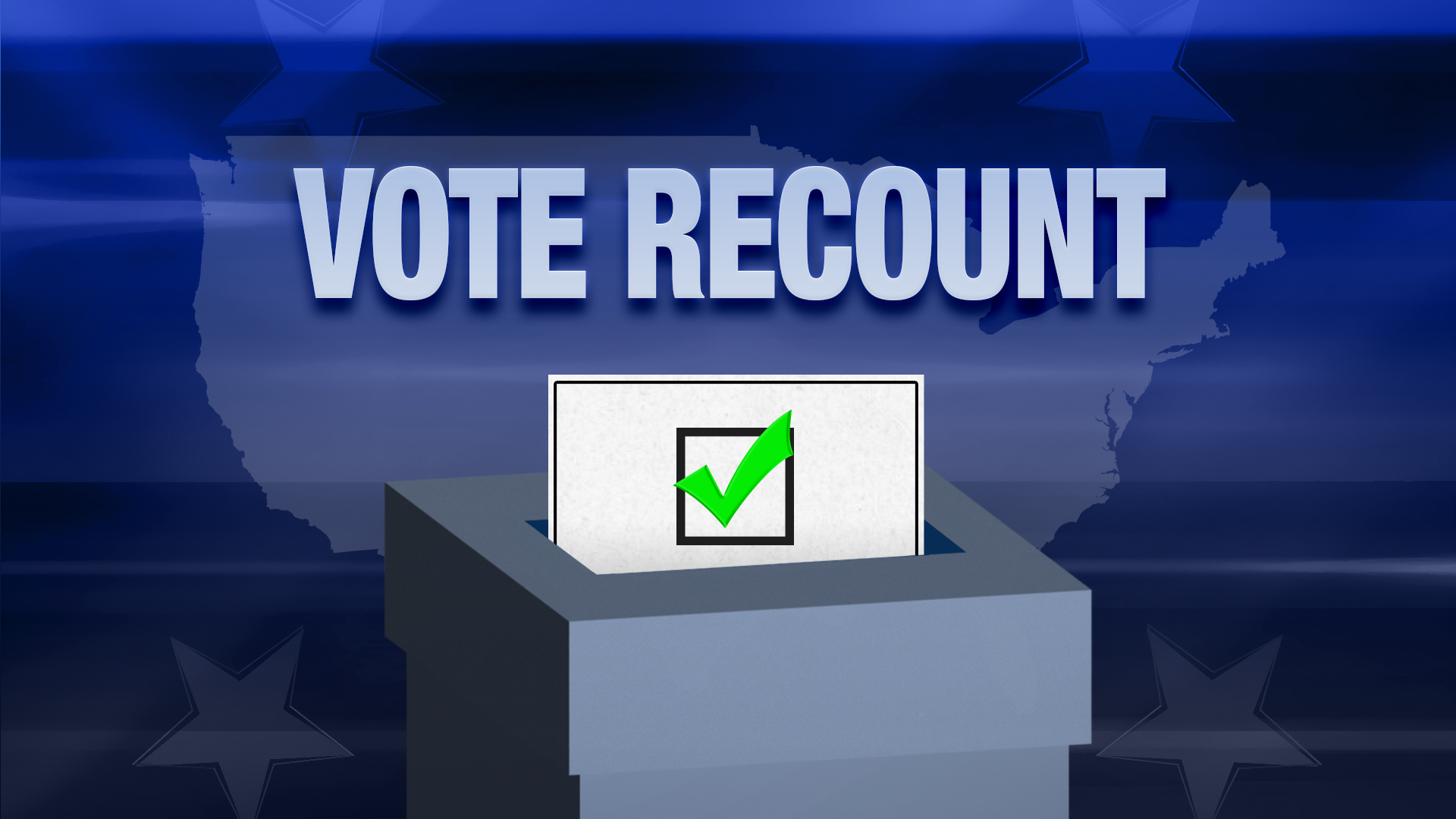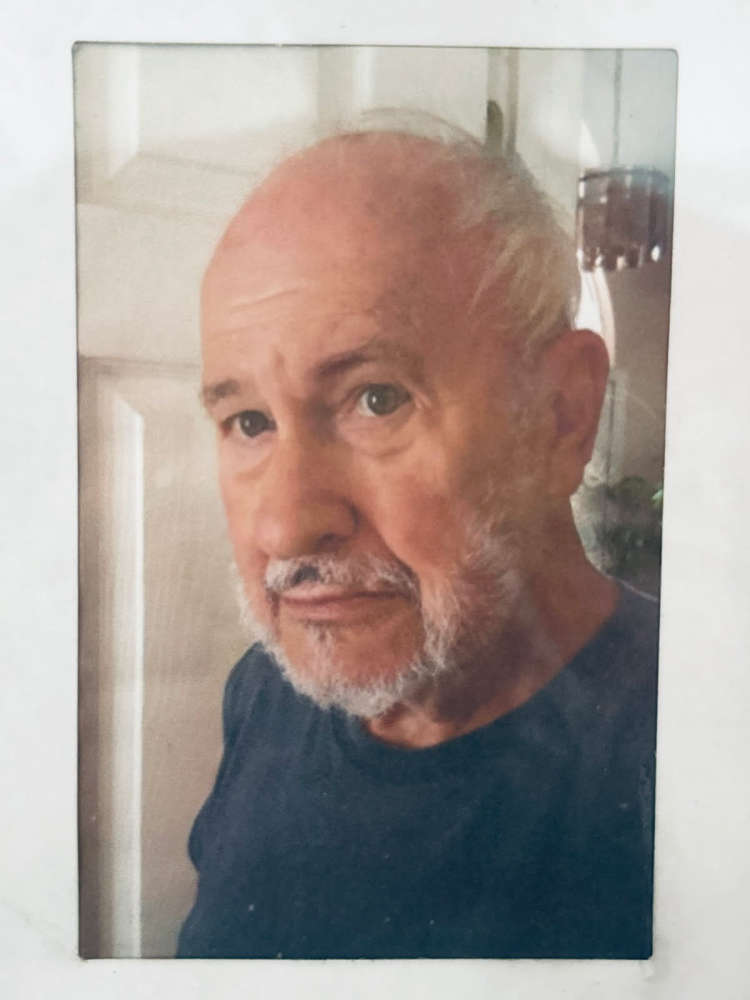
shelby-county-democrats-seek-recount-in-shelbyville-mayoral-election
19 votes. 1,406-1,387. That's all that separated election winner Republican Scott Furgeson from Democrat Nic Weber in the race for Shelbyville mayor. And now, that final tally from the recently completed November 7 election is ecpected to come under further scrutiny with a filing by the local Democrat party in Shelby County Court to seek a recount. Party Chairman Denny Ramsey.Democrat candidate Nic Weber.
There's no definitive date for a recount to take place. Once the filing takes place further information will come from the court.
The following information related to recounts can be found in the 2023 Indiana Election Administrator's Manual. Recount & Contest ActionsThere are no automatic recount or contest actions in Indiana. Instead, specific individuals may petition the courts (local office) or state recount commission (statewide, state legislative, or federal offices) to request a recount. (IC 3-12-6; IC 3-12-11) A recount reviews the election materials and ballots already cast in an election and determines which candidate received the highest number of votes; a contest action may result in a new election being called for the specific race or contest.
Election Recount Procedures
A candidate seeking nomination or election to a judicial, local or school board office, or a candidate for election to the party office of precinct committeeman or state convention delegate may request that the votes cast for that office be recounted. (IC 3-12-6-1) Recount requests for federal, statewide, or state legislative offices are handled by the State Recount Commission; please see the “State Recount Commission” section below for those details. (IC 3-12-11-1)
A candidate requesting a recount must file a verified petition for recount in the circuit or superior court of the county no later than noon, prevailing local time, fourteen (14) days after the election.
If the candidate does not do so, the candidate’s political county chairman may file a recount petition no later than noon, prevailing local time, seventeen (17) days after the election. (IC 3-12-6-2) A cross-petition for a recount may be filed no later than noon, prevailing local time, twenty-one (21) days after the election. (IC 3-12-6-4)
The recount petition must state the following: (IC 3-12-6-3)
The office for which the recount has been filed The precinct(s) in which the recount is desired That the petitioner was a candidate at the election for the office/or the appropriate county chairman and that the office was voted upon in the precinct(s) specified The name and addresses of the petitioner’s opposing candidate(s) That the petitioner in good faith believes that the votes cast for the office at the election in the named precinct(s) were not correctly counted and returned That the petitioner desires a recount of all the votes cast for the office in the named precinct(s).If the county uses optical scan ballot cards, a petitioner may request that the ballot cards cast in the specified precincts be recounted manually. (IC 3-12-6-21.5) A cross-petition contains virtually the same information. (IC 3-12-6-6)
The petitioner must pay the civil case-filing fee under IC 3-12-6-2.5 (also see IC 33-37) and file a bond or cash deposit of at least $100 with the court for payment of costs of the recount. For every precinct over ten to be recounted, the bond or cash amount should be increased by $10 per precinct or $100 per precinct, depending upon whether the candidate lost by more or less than 1%.
The court will establish the amount of the deposit, but this amount may not exceed the maximum amount specified by state law. Any cash deposit is placed in the county general fund. (IC 3-12-6-10.5) If the recount petition is successful, the petitioner’s deposit or bond is refunded in full. Partial refunds may also be required, based on theoutcome of the recount. (IC 3-12-6-10)
If a cross-petition is filed, the cross-petitioner must file a bond or cash deposit for the cross-petitioner’s proportional share of the recount. If the recount petition is unsuccessful, a cash deposit was not made, and the costs of the recount exceed the bond amount, the petitioner or cross-petitioner must pay the difference. (IC 3-12-6-12) Any unexpended balance remaining after payment of all costs and any refund shall be deposited in the county general fund. However, if a cash deposit or bond was filed, then any other cost of the recount that remains unpaid following the determination of the local recount commission and which cannot be recovered shall be paid from the county general fund without appropriation. (IC 3-12-6-17.5)
Once the petition is filed, the county clerk assigns the petition a cause number as a miscellaneous civil action and issues a notice of the filing and pendency of the petition to the opposing candidate(s). (IC 3-12-6-2.5) The sheriff then delivers the notice to the opposing candidate(s), to the county election board, and to the election division (if the recount relates to the office of judge or prosecuting attorney). (IC 3-12-6-9)
Upon granting the petition or cross-petition for a recount, the court appoints a three member recount commission to perform the physical recounting of the votes. One member of the commission must be a Democrat and one member
must be a Republican. See IC 36-1-8-10 to determine party membership for this purpose. The judge may request the two county political party chairmen to recommend nominees to the recount commission, though is not required to do so, except as described in the paragraph below, each member of the commission must be a registered voter of the county qualified to vote at the election. (IC 3-12-6-16)
Where only traditional hand counted paper ballots were used in the election, the remaining member must be a Democrat or Republican qualified to vote in the district of the recount. (IC 3-12-6-16) If a voting method other than hand counted paper ballots was used in the election (for example, an optical scan ballot reader or direct recording electronic (DRE)), one member of the commission must be a “competent mechanic” who is familiar with the voting system used in the election. This person does not need to be a voter of the district. (IC 3-12-6-16)
Each member of a recount commission is entitled to be compensated. Each member receives a per diem not to exceed $100 for each day engaged in conducting the recount. The judge of the court having jurisdiction over the
recount must establish the compensation to be paid to each recount commissioner. (IC 3-12-6-17) If the deposit or bond is not sufficient to pay the compensation of the recount commission or any other recount expenses, the compensation or expenses are to be paid from the county general fund, without appropriation. (IC 3-12-6-17.5)
After the recount is ordered, the commission must immediately begin the recount. The court must fix the place and time for completing the recount. Each candidate may attend and may have a watcher attend the proceedings. The watcher has the same rights as a political party’s polling place watcher. Members of the press may also attend and have the same rights as media watchers at precinct polling places. (IC 3-12-6-21)
The recount commission must adopt ballot counting rules and any other rules needed to restrict access to the ballot counting areas to authorized individuals, including candidate and media watchers. These rules must conform as closely as possible to the guidelines adopted by the State Recount Commission. These guidelines may be found at https://www.in.gov/sos/elections/voter-information/register-to-vote/indiana-recount-commission/ (IC 3-12-6-21)
The recount commission’s proceedings must be performed in public under the Open Door Law, but the commission may restrict access to parts of the room where election materials are being handled or transported. The court, by order, impounds all traditional hand counted paper ballots, optical scan ballot cards, electronic voting systems, poll lists and tally sheets. These materials will be made available to the recount commission. However, a circuit court clerk or board of voter registration may copy any election materials other than the ballots under the supervision of a person designated by the court. (IC 3-12-6-19)
NOTE: A recount conducted by a local recount commission must be completed no later than the last Friday in June after a primary election or December 20 after a general election, unless the court finds good cause to extend this deadline to another specific date! When the recount is complete, the commission makes out a certificate verifying the totals and stating the candidate receiving the highest number of votes. (IC 3-12-6-21.9)
The commission then files the certificate with the circuit court clerk, who adds this to the order book of the court and sends a certified copy by certified mail to each opposing candidate named in the petition (and to the Indiana election division if the local recount concerned the office of circuit, superior, probate or Marion County small claims judge or prosecuting attorney). (IC 3- 12-6-18; IC 3-12-6-22; IC 3-12-6-28)
After the commission files the certificate, the court that appointed the local recount commission issues an order acknowledging the filing of the certificate, discharging the commission, and releasing election materials impounded during the recount. An appeal may be taken to the court that appointed the local recount commission but must be filed no later than thirty (30) days after the court issues the order described in this paragraph. (IC 3-12-6-22.5)
After a recount in an election for a public office has been completed, if there is a difference between the votes shown by the recount certificate and the votes tabulated by the county election board the circuit court clerk issues a certificate setting forth the number of votes cast for each candidate in the election to the county election board if the candidate would receive a certificate of election or nomination from the board or to the Indiana election division and the governor, if the candidate would receive a commission from the governor. (IC 3-12-6-31) Candidates for precinct committeemen and state convention delegate are selected after the recount by their political party’s applicable rules. (IC 3-12-6-1.5)


 IDVA offers grant opportunities for non-profit organizations serving the Indiana Veteran Community
IDVA offers grant opportunities for non-profit organizations serving the Indiana Veteran Community
 Gov. Braun activates Indiana National Guard to aid in storm recovery
Gov. Braun activates Indiana National Guard to aid in storm recovery
 Passenger taken to IU-Methodist from two-vehicle Shelbyville crash
Passenger taken to IU-Methodist from two-vehicle Shelbyville crash
 Shelbyville makes major advancement in public safety and emergency response times
Shelbyville makes major advancement in public safety and emergency response times
 Registration open for Tree Trot 5K Run
Registration open for Tree Trot 5K Run
 Flat Rock Christian Church offers shelter Wednesday with potential severe weather
Flat Rock Christian Church offers shelter Wednesday with potential severe weather
 INDOT prepared for severe weather, widespread flooding through weekend
INDOT prepared for severe weather, widespread flooding through weekend




